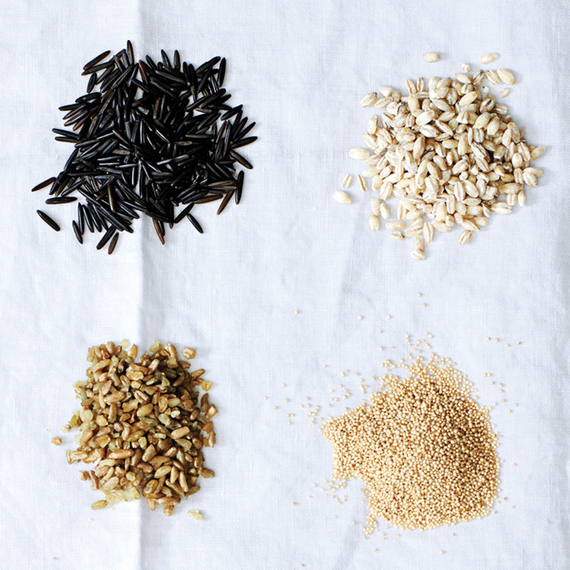Sure, we're all familiar with rice and the ever-popular superfood, quinoa. But there's a whole world of grains (and seeds masquerading as grains) out there for you to explore, from itty bitty millet to toothsome wheat berries. These wholesome guys will upgrade every meal, providing you with a filling, feel-good breakfast and saving you from another mundane keyboard-adjacent lunch. The best part: If you can boil a pot of water, you're already there. But before you venture out into this exciting new endeavor, take a moment to learn everything you need to know about these hearty meal building blocks.
SEE MORE:Ingredients We Can't Cook Without
5 Nutrient-Packed Grain Recipes to Upgrade Your Meals
From wild rice and oats to spelt and millet, these wholesome guys will upgrade every meal. The best part: If you can boil a pot of water, you're already halfway there.
- Build a Salad: Black and Wild Rice Salad with Roasted Squash
- Boost Your Batter: Millet-Scallion Pancakes
- Toast for the Most: Toasted Spelt Soup with Escarole and White Beans
- Up With Oats: Nutty Grain and Oat Bars
SEE MORE: The Food Lovers' Cleanse
How to Cook Grains Using the One-Pot Method
1) Presoak: Soaking slow-cooking grains (like farro and rye berries) in water overnight reduces their cooking time, makes them more digestible, and improves texture. Optional, but worth it.
2) Boil Like Pasta: Add grains to well-salted boiling water and simmer rapidly until done, which could take as little as 15 minutes for something bitty like millet or quinoa, or over an hour for a slow-cooking grain. Easy ratio: Cook 1 cup of grains in 6 cups water for 4 people.
3) Taste as You Go: Cook grains till al dente: tender, but with some chew. As they simmer, taste them periodically (it's the best way to check). Use a fine-mesh sieve for draining -- little beads of amaranth will pass right through a colander.
A Guide to Identifying Grains, from Amaranth to Sorghum
